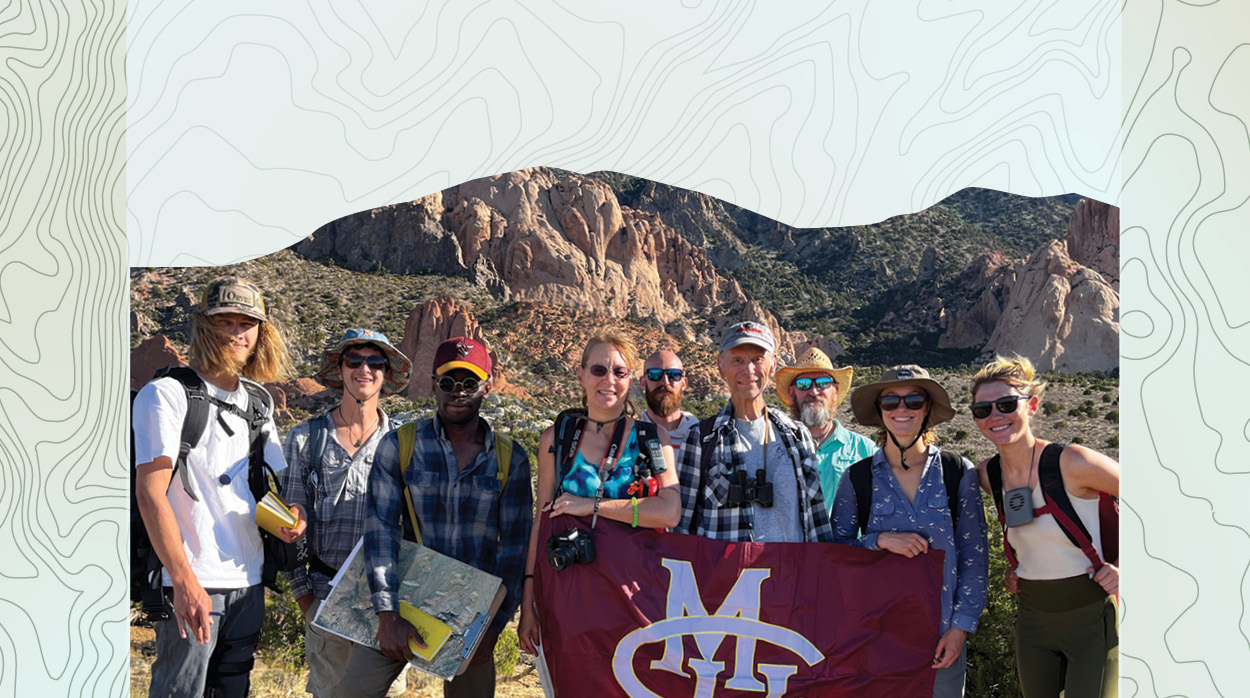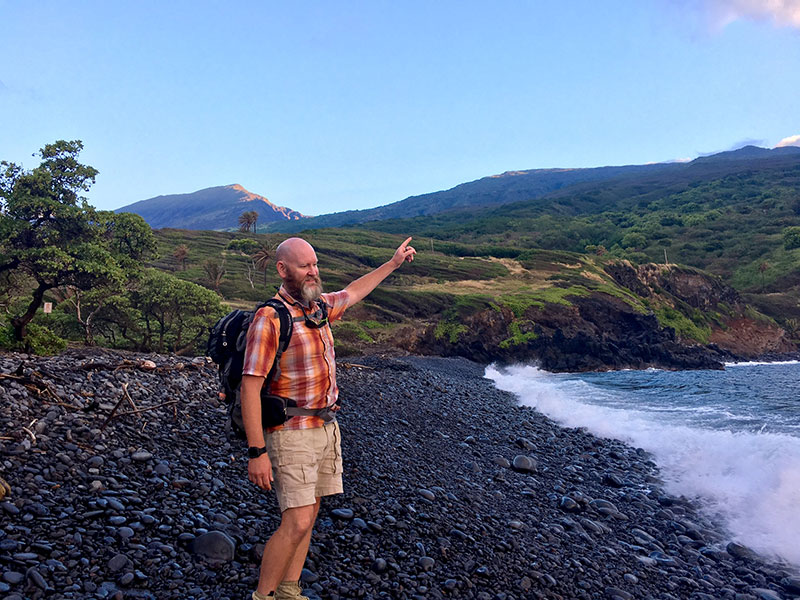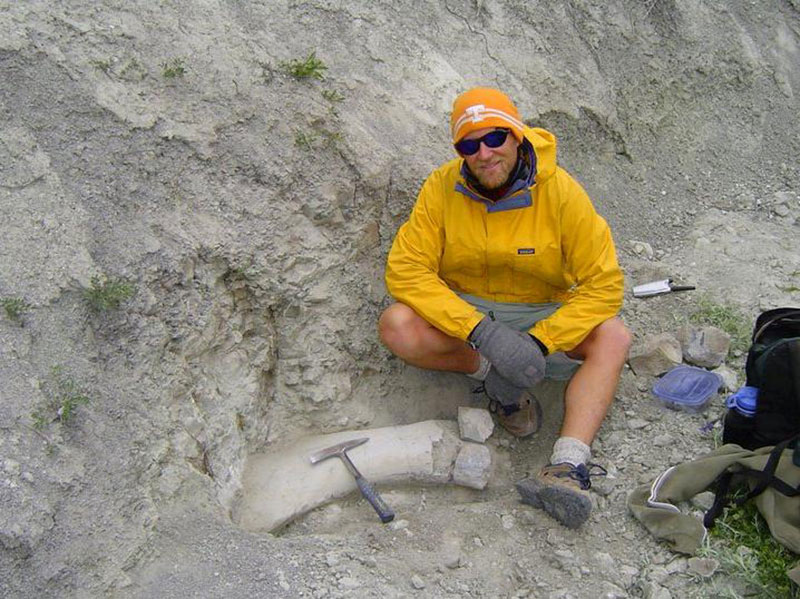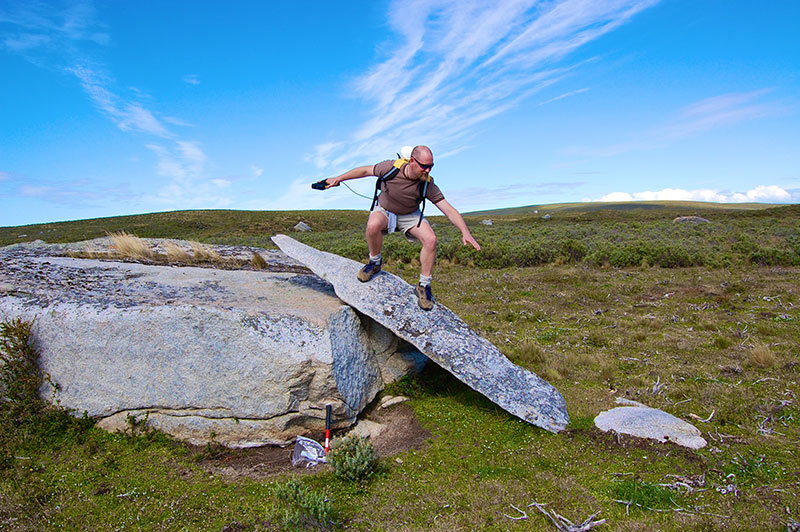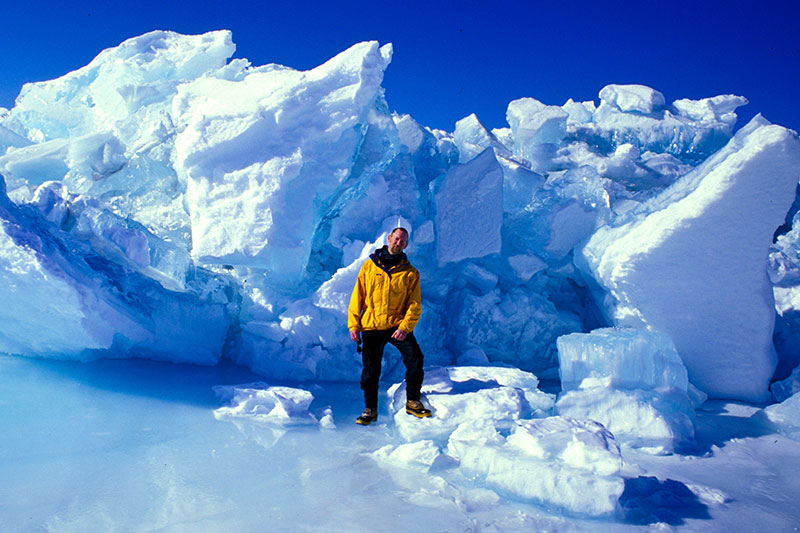CMU Professor of Geology Gregory Baker, PhD, inspires his students through research-centered education
With a doctorate in geophysics and seismology and a master in geological and Earth science, Professor of Geology Gregory (Greg) Baker, PhD, is living the dream — working a stone’s throw from the some of the best geological research opportunities in the country.
There is no argument that Baker loves teaching in Grand Junction. He said he’d choose this location any day, and that the Grand Valley is in his top ten list of geologic playgrounds.
“Teaching geology in the Grand Valley, on Colorado’s western slope, is like teaching art in Paris or teaching English and Shakespeare in London,” Baker said.
His love for his work speaks for itself, and after nearly 32 years as a student, educator, researcher and scientist, he has built a curriculum vitae that might reach the top of Grand Mesa — 44 pages. But Baker said he feels humbled to be walking among giants as a freshly minted lifetime Fellow of the Geological Society of America (GSA).
“Some of the other people who are GSA Fellows, I mean, they’ve served on the international climate panel, they’ve been doing these hugely meaningful things,” he said.
“Fifty years from now, you might be able to dig deep on Google Scholar and find my name, but I’m not a world-class scientist,” he humbly said. “In a way — and I don’t say this derogatorily — I sort of feel like I’m being honored as a good worker bee.”
But he is, in fact, a busy bee.
During his career, Baker has funded his interdisciplinary research with $2 million in grants from the U.S. Department of Defense, Department of Agriculture, Department of Energy and the National Science Foundation.
For the GSA, he has voluntarily taught nine short courses as the sole instructor, chaired sessions, authored and presented 21 abstracts and supervised graduate and undergraduate students as they authored and presented 32 of their own abstracts.
In 2019, he came to CMU as a full-time professor of geology, with focuses on groundwater hydrology, environmental geophysics, seismic imaging, ground-penetrating radar, geology field mapping and 3D modeling.
In total, the “Rock Doc” has taught more than 4,400 students in 88 university courses during a career that has spanned three decades.
“He conveys his enthusiasm to his students and has recruited scores of geoscientists, providing them with a first-rate geoscience education. And his record is rich with innovation,” said Professor of Geology at Slippery Rock University Patrick Albert Burkhart, PhD, who nominated Baker for the GSA honor.
Baker always dreamed of becoming an educator, like his mother. As a boy, he wanted to be a grade-school teacher. As a teen, he aspired to teach high school.
“Then I went to college [Lehigh University in Bethlehem, Pennsylvania] for civil engineering,” he said. “I saw it as a high-paying job that would integrate my interests in science, technology and the outdoors.”
But Baker began to rethink that plan after taking two geology classes from a talented professor, Ed Evenson, PhD, who “turned on a light bulb for me.” His trajectory pivoted dramatically during his junior year when he studied abroad at the University of Edinburgh in Scotland.
“Edinburgh is one of the original homes of modern geology, and that’s where I became hooked on becoming an earth scientist,” he said. “I’d walk around those university halls looking at photos of the old professors there and started to feel a deeper connection to people teaching people,” Baker said.
It was easy to become awestruck by the work geologists had come to accumulate years before him.
“You can still find their old field books with the sketches they made of things they were seeing. Then you can go for a walk and look at the same rock they were looking at when they came up with these brilliant ideas.”
Baker has always been adaptive in his field and uses what he learns in his own research to better educate his students. Since 2016, Baker has been teaching students how to use an evolving technology — drones.
“Drone work has been a major revolution – it’s given us the ability to see things that satellite imagery and Google Earth can’t,” he said. “A satellite image can differentiate things that are a meter in size. With drones, you can see pebbles, or a millimeter-size fracture in a rock — features that are just miniscule or over a bigger area than you can see with your naked eye.”
Piloting an image-making drone also affords geologists like himself and his students a close-up look at rocks on cliffs and other locations previously too treacherous to safely explore.
“And then we can go back to the lab and study those images safely,” said Baker, who currently implements this course work into two of 10 undergraduate courses a year and while serving as director of CMU’s Summer Field Program.
As a student himself, Baker would take to the field, hiking thousands of miles to uncover all that the rocks around him had preserved. The time it took him to uncover each unique snippet of history would’ve taken minutes with the technology he is using in the classroom today.
“As an undergrad student, I’d grab my tent and spend three months hiking to find the same things we’re finding with a drone today in a fraction of that time.”
It is easy to continue chasing your passions when you have like-minded people in your corner. Baker and his wife, Jennifer Roberts, PhD, — a senior vice-provost at the University of Kansas, swap stories and discoveries thanks to their shared passion for science and geology. Both Baker and Roberts are accomplished contributors to science. Baker even humbly compared his accomplishments to that of Roberts’.
“Jennifer is an awesome geologist,” he said. “I mean, she’s had papers in the proceedings of the National Academy of Science — which I have not.”
Despite their marriage of almost 10 years, Baker laughs at the fact they battle science's two-body problem — managing to get two academics together in the same town at the same time. But the two of them do spend most of their time together during university and holiday breaks, alongside their three kids from their previous marriages, one in high school and two in college.
Sometimes, you can just tell where a person’s passions will take them, and how they will help form the person they will someday become. Baker’s mom always had the right inclination.
“My mama has a clear recollection of looking out the window, watching me run around the yard as a toddler, all by myself, catching butterflies, then releasing them after careful examination,” Baker reflected. “She said she always thought I’d be a scientist.”
And she was right — Baker became an accomplished doctoral level geological scientist, a lifetime Fellow of the Geological Society of America and a dedicated educator at that.
